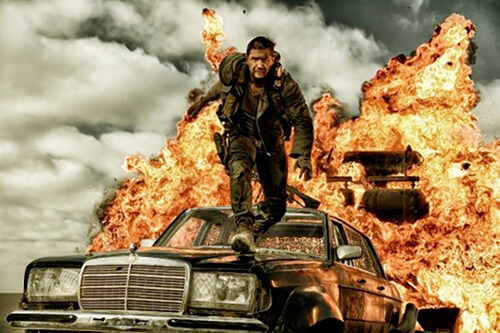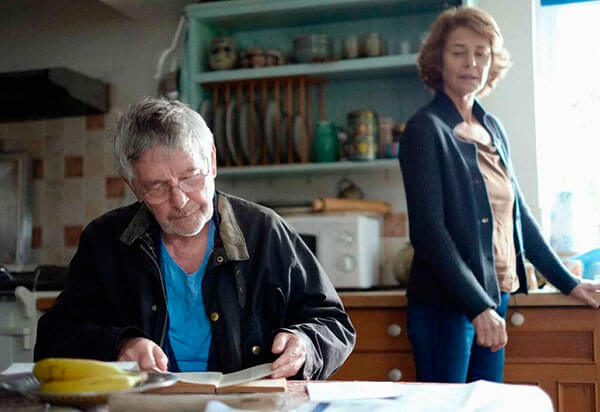“Fury Road” reboots the legendary Mad Max franchise which has been sitting dormant for several decades. This fourth installment was again produced, written and directed by Oscar-winner George Miller (for Happy Feet) who tapped Tom Hardy to replace disgraced Mel Gibson in the title role as Max Rockatansky, the highway patrol officer-turned-intrepid road warrior given to dispensing a grisly brand of vigilante justice.
Set in 2060 AD, this post-apocalyptic adventure unfolds in the relentlessly-grim dystopia left in the wake of the series of global calamities that led to a total breakdown of civilization. At the point of departure, we find Max haunted by his tragic past and hunted by desperate scavengers as he drifts around the vast wasteland in a rusty, rattling, off-road muscle car.
The stoic gunslinger’s resolve to go it alone is soon tested when he crosses paths with Imperator Furiosa (Charlize Theron), a fearless alpha female making a break across the desert with former sex slaves hidden in the hold of her big rig. She’s just freed the traumatized quintet from the clutches of Immortan Joe (Hugh Keays-Byrne), a ruthless tyrant who wants his breeders back, especially Splendid (Rosie Huntington-Whiteley), since she’s already pregnant and possibly carrying his first male heir.
The enraged warlord has dispatched a caravan of bloodthirsty goons who will stop at nothing to retrieve his so-called “wives.” Fortunately, they’ve found a sympathetic soul in Max who agrees to join forces with Furiosa upon being apprised of their plight.
The plan is to drive non-stop across the desert to “The Green Place,” a Shangri-La rumored to be teeming with water, vegetation and other scarce natural resources. But getting there proves to be all the fun, as our intrepid hero and heroine negotiate a relentless gauntlet of evil adversaries in dune buggies outfitted with a very creative variety of deadly military hardware.
An edge-of-your-seat, adrenaline-fueled, high body-count splatterfest that remains riveting from start to finish despite dispensing with the idea of plot development once the premise has been set.

























